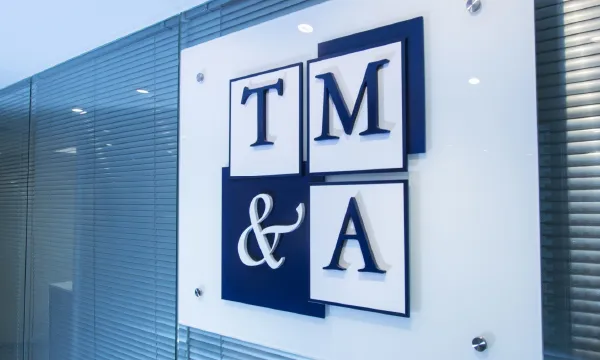
Top deal-maker TMA connects Europe to China
TMA provides in-depth understanding of Hong Kong laws and taxation for companies looking to set up investment projects not only in the city but also in other parts of China.
With China firmly pushing its Belt and Road Initiative (BRI) development strategy, doors have opened for European countries to invest in the Middle Kingdom. The influx of European companies can be attributed to the years of ground work laid out by Chinese President Xi Jinping. Because of this many European investors have taken a second look in putting their money in China. Hong Kong-based deal-maker Thomas, Mayer & Associés (TMA) has taken this opportunity to service European clients in their investment projects in China.
Intimate knowledge
TMA provides in-depth understanding of Hong Kong laws and taxation for companies looking to set up investment projects not only in the city but also in other parts of China. Established in 1995, the international law firm specialises in the economic migration of companies from Europe to Southeast Asia and China, and from Southeast Asia to Europe, specifically France.
Owing to its more than two decades of experience in the commercial and legal practices in the region, TMA’s knowledge of the economic and legal environments makes it the go-to law firm of companies seeking to do business in China. Amongst its practice areas are international business law, mergers, acquisitions, and joint ventures, corporate and commercial law, international tax law, international arbitration and litigation, as well as private international law and immigration law.
In China, specific legal requirements, such as a Wholly Foreign Owned Enterprise (WFOE), have to be satisfied and are even an economic necessity for foreign companies looking to do business there. Clients also seek TMA’s assistance on drafting and finalizing commercial agreements such as strategic planning of transactions, negotiation of contracts, deal implementation, and contract management.
TMA is able to survey the legal impact of international transactions, making it valuable to any foreign investor. The law firm also provides representation in institutional or ad hoc arbitration and alternative dispute mechanisms. It also handles immigration matters by helping foreign companies with their international transfers and cross-border recruitment of existing and new employees.
Its extensive knowledge of Immigration law and government practices and policies, as well as its expertise in handling work permit applications, make it easier for foreign companies to hire employees. TMA’s clients range from mid-sized companies to major conglomerates, including tech companies, food and beverage, construction, fashion and cosmectics, pharmaceuticals, medical, as well as financial technology firms and retail.
Its services and advice are tailor-fit for each client, taking into account practical solutions and extended practice areas. The law firm also aims to optimise its services by adopting strategies based on the client’s company size and available resources. The TMA team is composed of 30 people led by Senior Partner Eric-Jean Thomas and Managing Partner Eric Mayer.
Structuring Investments
China’s local economy has also been rapidly shifting from being production-based to being geared more towards new technologies, services, and consumption. Its push for the BRI has also led to many European companies rationalising and restructuring their assets in the region. These companies have been consolidating disparate assets and optimising financial flows.
It is now necessary to rationalise structures, flows, and decision-making processes to keep up with the rapidly changing economic landscape.This is where TMA’s cadre of topnotch corporate lawyers comes in.
Its more than 22 years of experience on taxation, contracts, and company restructuring enables TMA to implement efficient solutions which take into account its extensive knowledge of tax and legal processes.
Whilst most companies choose amongst Shanghai, Singapore, and Hong Kong, the latter’s great number of benefits have made it the preferred hub for many European firms’ headquarters in Asia.
China’s stringent regulations regarding payments have not deterred European investors. Instead, they have realised that the benefits far outweigh the costs.
Amongst the benefits of setting up shop in Hong Kong are more than 40 double taxation agreements currently in force, coupled with numerous commercial treaties and agreements with China such as CEPA and Trade Processing Agreements, and a unique role as the global hub of choice for RMB transaction.
This is apart from having a Grade A logistic hub, one of the leading airports for commercial freight in the world, dynamic commercial legislation, and an easily readable tax system.
In fact, foreign direct investments (FDI) in China via Hong Kong is back to the level it was 10 years ago prior to the 2008 financial. FDIs from Hong Kong saw a drop of as low as 30% during the 2008 financial crisis, but it has since rebounded.
Hong Kong, currently, claims as much as 70% of the FDIs in mainland China. Apart from the BRI, China has also been relaxing its rules governing Chinese companies investing abroad.
This is another opportunity TMA is keen to take advantage of as more and more Chinese investors look to invest in Europe. As such, TMA established a subsidiary in Paris, France in 2010 with Emma Bensoussan-Crémieux as its local managing partner.
All lawyers of TMA’s Paris office are members of the Paris Bar, and as one of the top Asia-Europe deal-makers, it has also attracted lawyers specialised in international mergers and acquisitions.








![Cross Domain [Manu + SBR + ABF + ABR + FMCG + HBR + ]](https://cmg-qa.s3.ap-southeast-1.amazonaws.com/s3fs-public/styles/exclusive_featured_article/public/2025-01/earth-3537401_1920_4.jpg.webp?itok=WaRpTJwE)









 Advertise
Advertise


